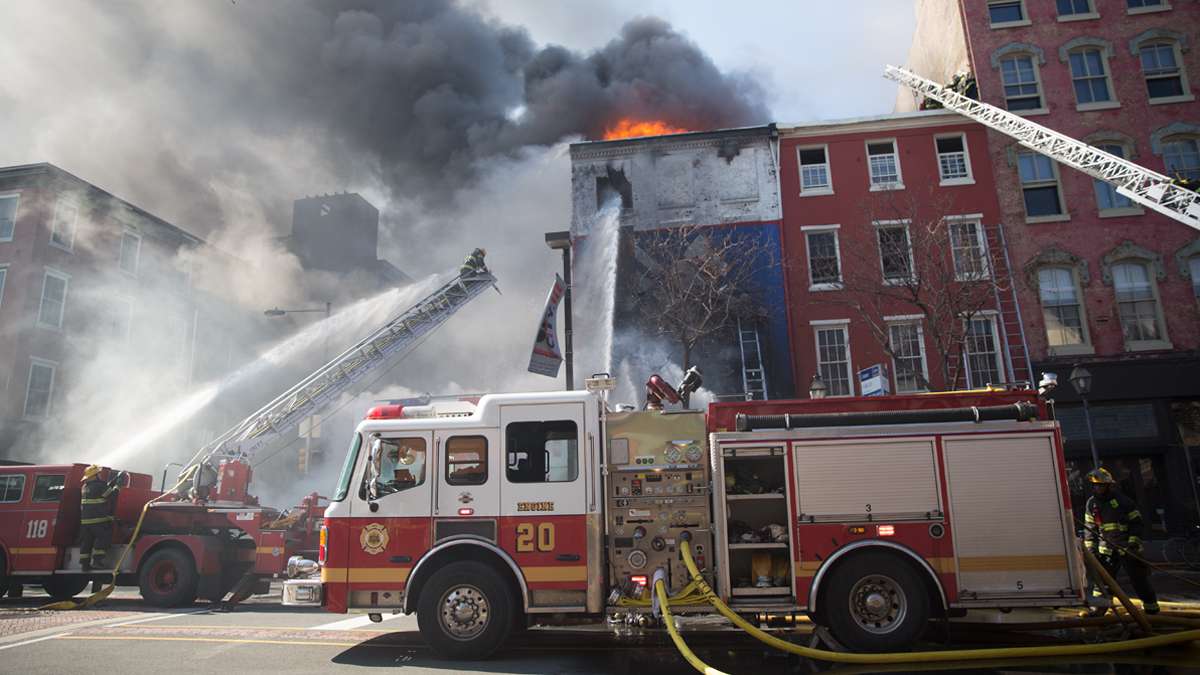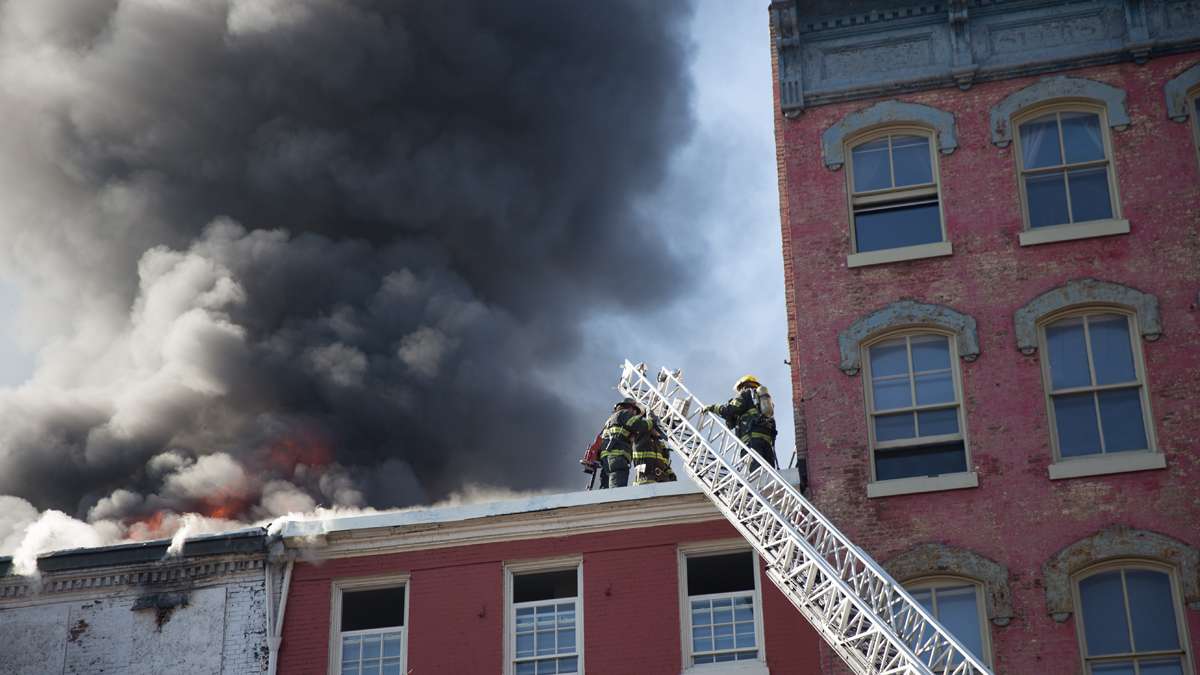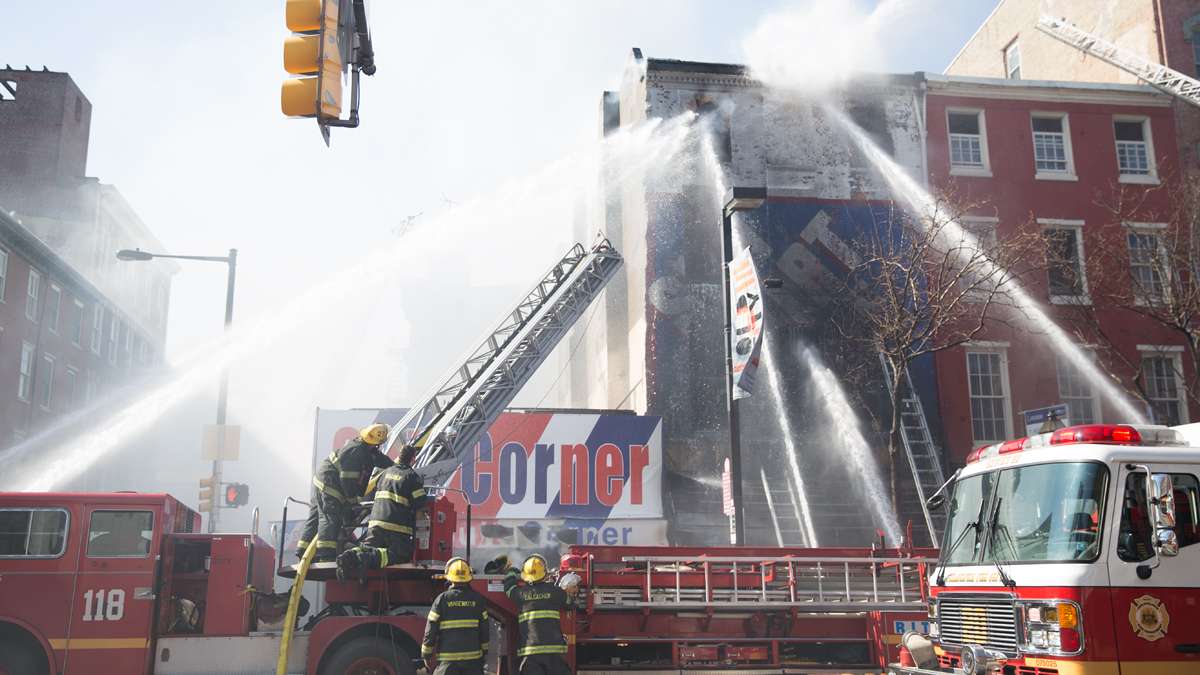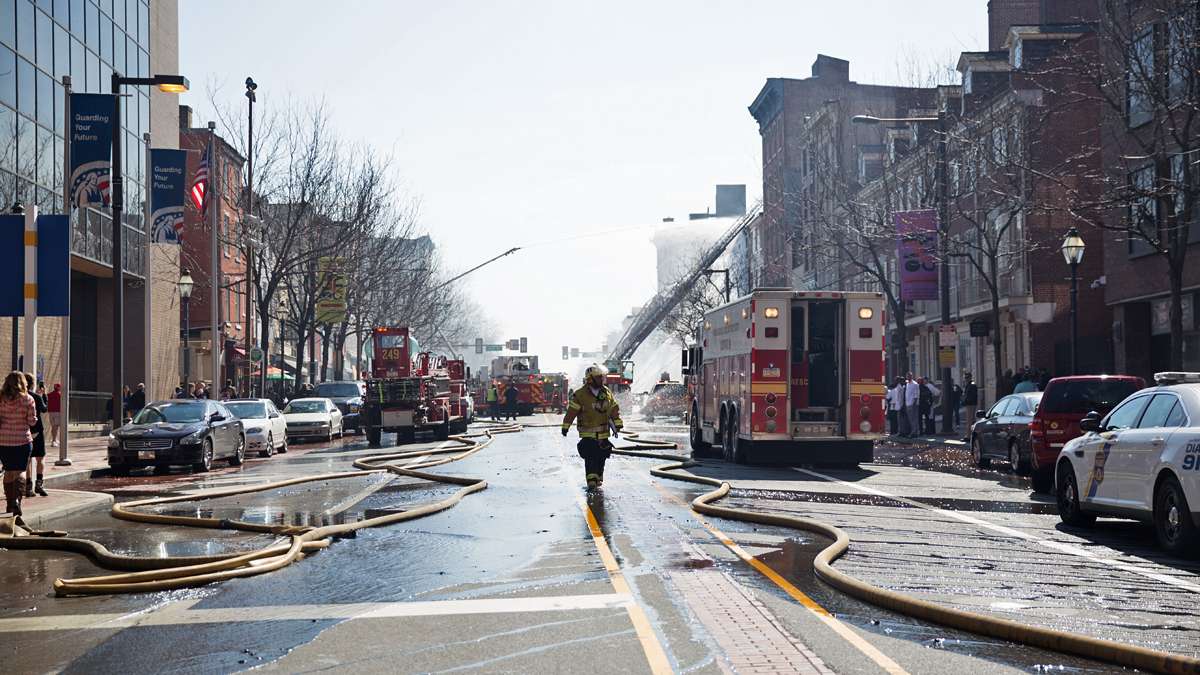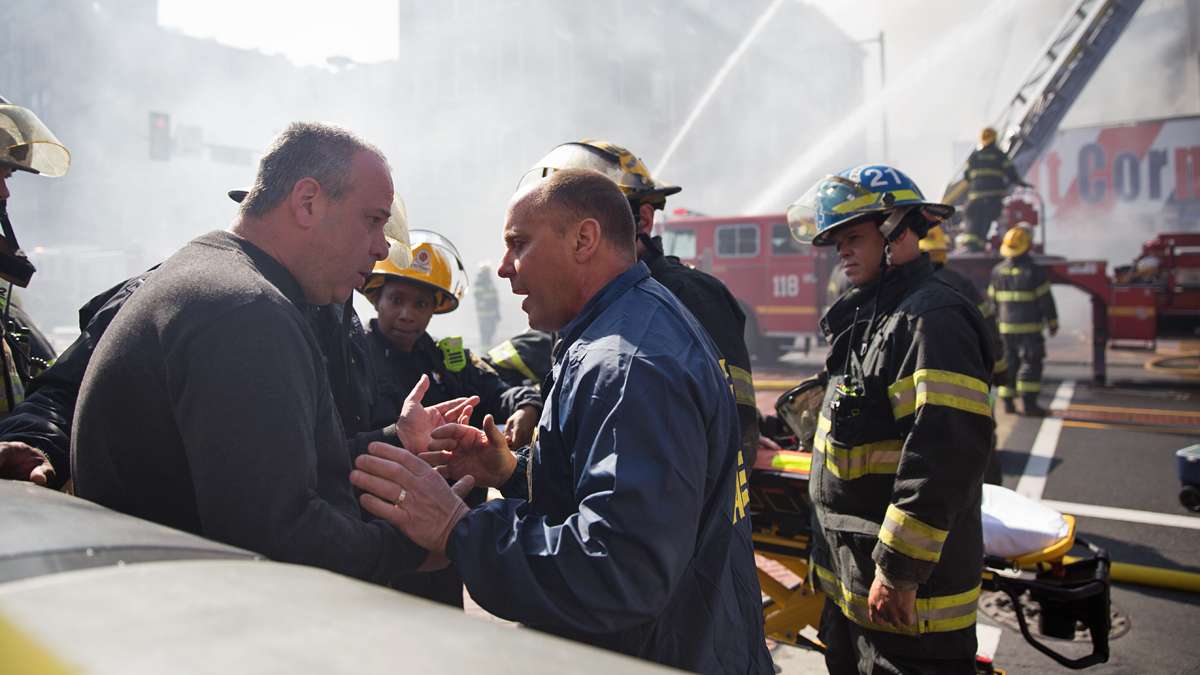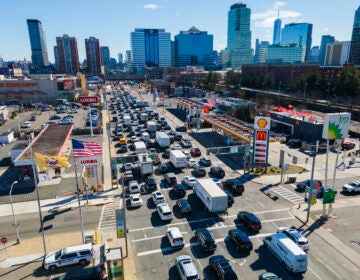Friday deadline set for Christie’s lawyers to produce documents
Legislative investigators may be headed toward a legal showdown with Gov. Chris Christie and his team of lawyers to obtain the documentary evidence that was used to clear the governor and his top aides of wrongdoing in Bridgegate and other Port Authority-related scandals.
But the “evidence” may be of little value.
Assemblyman John Wisniewski (D-Middlesex), cochairman of the Joint Select Committee on Investigation, said yesterday it is his understanding that Randy Mastro and his Gibson Dunn & Crutcher firm not only failed to conduct the 70 interviews under oath, but also failed to videotape, audiotape, or have a stenographer make transcripts of any of the interviews.
“If this was supposed to be a transparent 360-degree examination of what happened, the lack of any hard evidence of what people said and how they responded to questions means that this report is based upon nothing more than the (Mastro team’s) mental impressions of what people said,” Wisniewski noted. “That’s the classic definition of hearsay,” he said, dismissing the conclusions of the $1 million taxpayer-funded study.
Nevertheless, Wisniewski and Senate Majority Leader Loretta Weinberg (D-Bergen) said the committee wants whatever interview memos or other documentary evidence that does exist. They said the panel would give the governor’s office and Mastro’s firm only until Friday to provide the materials voluntarily before issuing a subpoena.
Wisniewski also announced that the governor’s office, Christie’s reelection campaign and former Port Authority Chairman David Samson are the only three entities and individuals who have yet to fully comply with the wave of 28 subpoenas issued by the panel in late January.
Wisniewski said he did not believe the panel has received records of Christie’s cellphone, emails, and text messages, and added that the committee has received little from Samson, who refused to be interviewed by the Mastro committee and whose alleged conflicts of interest at the Port Authority are the subject of a probe by the U.S. Attorney in the Southern District of Manhattan and of complaints to the state Ethics Commission.
Weinberg and Wisniewski announced the prospective subpoena and the absence of any tapes or transcripts of the Mastro team interviews in a press conference after a meeting of the investigative committee that followed four days of explosive developments in the Bridgegate scandal:
U.S. Attorney for New Jersey Paul Fishman is presenting witnesses to a 23-member federal grand jury empaneled for 18 months that is apparently investigating both the George Washington Bridge lane closures and Hoboken Mayor Dawn Zimmer’s allegation that the Christie administration threatened to withhold Sandy aid if she did not support a high-rise development project represented by Samson. Christie press secretary Michael Drewniak testified last Friday.
David Wildstein, Christie’s political lieutenant at the Port Authority who directed the George Washington Bridge lane closures and claims to have told Christie about them while they were happening, met with Fishman’s investigators for three days last week, a reporter who used to cover Christie’s U.S. Attorney’s Office reported on the Main Justice website. It is the latest evidence that Wildstein may be close to the immunity deal he has been seeking.
The Main Justice story also reported that Charles McKenna, Christie’s chief counsel, met secretly with Fishman’s office in mid-January. This was just a few days after the release of Deputy Chief of Staff Bridget Kelly’s infamous “time for some traffic problems in Fort Lee” email first tied the scandal directly into the governor’s office. McKenna, who now heads the Schools Development Authority, can provide inside information on the internal response of the Christie administration to the Bridgegate scandal: It was McKenna who questioned Port Authority Deputy Executive Director Bill Baroni, Wildstein’s boss, at Christie’s direction after the Wall Street Journal published Port Authority Executive Director Patrick Foye’s email alleging that the lane closures may have broken federal and state law.
Finally, Senate President Stephen Sweeney (D-Gloucester) on Monday undercut the legislative investigation when he told the Star-Ledger editorial board that the committee should suspend its Bridgegate probe if a federal judge declined to order the cooperation of Bridget Kelly and Bill Stepien, Christie’s former deputy chief of staff and campaign manager, who have invoked their Fifth Amendment rights in the Bridgegate case. While Sweeney recanted later in the day after Wisniewski protested, his initial statement cast doubt on his commitment to the ongoing probe.
Weinberg yesterday shrugged off Sweeney’s assertion as a “miscommunication” or an “inartful” response to a question, and both she and Wisniewski expressed confidence that the powerful Senate president was fully supportive of the continuation of their probe.
Nevertheless, Sweeney’s statement came as Republican leaders, including GOP members of the Select Committee on Investigation, have been urging the committee to focus on enacting legislation to reform the Port Authority and to leave investigation of the machinations of the Bridgegate scandal to the U.S. Attorney’s Office and the grand jury.
Assemblywoman Holly Schepisi (R-Bergen) made that case on MSNBC over the weekend, and Assemblywoman Amy Handlin (R-Monmouth) took the lead yesterday in urging the Democratic majority on the committee to pass a 16-bill package of legislation that she and other GOP lawmakers have sponsored, some of which are similar to those Wisniewski and Weinberg have sponsored in the past.
“What is stopping us from moving forward on our bills today?” Handlin asked, holding up a three-inch stack of legislation for the bank of 12 TV cameras covering the hearing.
Handlin said she didn’t understand Wisniewski’s insistence on completing the committee’s investigation of the causes and coverup of the George Washington Bridge lane closures before enacting reform legislation.
“I don’t understand the notion of ‘no culprit, no reform,'” she said. “If I’m walking down the street and see a stabbing victim, don’t you think I should stop the bleeding and not wait for the police to catch the culprit first?”
“We don’t know who the culprit is, who closed the lanes or how far this goes,” Wisniewski shot back, noting that Christie vetoed legislation two years ago sponsored by Weinberg that would have implemented reform measures similar to some of those Handlin was pushing. “Maybe you’re content with the way the governor’s office treats the Port Authority as just another desk in the governor’s office, but I’m not.”
Wisniewski opened the committee hearing with an impassioned defense of the need for the investigative committee to continue its work — a defense that seemed to be aimed equally at Sweeney’s statement Monday and at the growing barrage of Republican criticism. He noted that the committee’s job is “to understand how these politically motivated lane closures could have happened and to develop a legislative response.”To suggest that the Gibson Dunn report provides all of the information that we need to know is to frankly deliberately ignore its critical deficiencies, which are numerous,” Wisniewski said. “To suggest that the U.S. Attorney’s work will suffice is to deliberately ignore the strictly criminal focus of the U.S. Attorney’s probe and the limited public disclosure that comes along with it.”
He reminded the panel that “our investigation had its genesis in its examination of the Port Authority and its deficiencies,” adding that it was the Assembly Transportation Committee’s original “painstaking work” that led the Bridgegate investigation to the governor’s office.
Wisniewski got into a shouting match at the end of the short public session with Sen. Kevin O’Toole (R-Essex), Christie’s closest ally on the investigative committee, and made it clear that he was exasperated with Mastro’s firm for holding back thousands of pages of documents subpoenaed by the committee until the evening before the release of the report.
Kevin Roberts, the governor’s press spokesman, did not respond to an emailed question asking whether Wisniewski was correct that no tapes or transcripts existed from the 70 interviews, but that appears to be the case based on Mastro’s statement, which referred only to interview memos.
“We reached out to counsel for the committee over a week ago to discuss sharing voluntarily the interview memoranda regarding the lane realignment upon which our report was partially based,” Mastro said in a statement forwarded by Roberts. “In light of the committee’s statements this afternoon, we will look forward to continuing that cooperative dialogue.”
Wisniewski acknowledged that the committee’s legal team has had discussions with Mastro, but noted that it has been 12 days since the release of the Mastro report.
“The ultimate tool the committee has is subpoena authority that would compel production of the documents,” Wisniewski said. “We’re willing to wait a moderate amount of time for cooperation,” he said, but added, “The deadline is the end of the week.”
Wisniewski dismissed Handlin’s complaint that the committee has already spent more the $200,000 on legal bills for its special counsel, Reid Schar, the former assistant U.S. Attorney from Illinois who successfully prosecuted Democratic Gov. Rod Blagojevich on corruption charges.
“What is the price of truth?” he asked.
_____________________________________
NJ Spotlight, an independent online news service on issues critical to New Jersey, makes its in-depth reporting available to NewsWorks.
WHYY is your source for fact-based, in-depth journalism and information. As a nonprofit organization, we rely on financial support from readers like you. Please give today.



